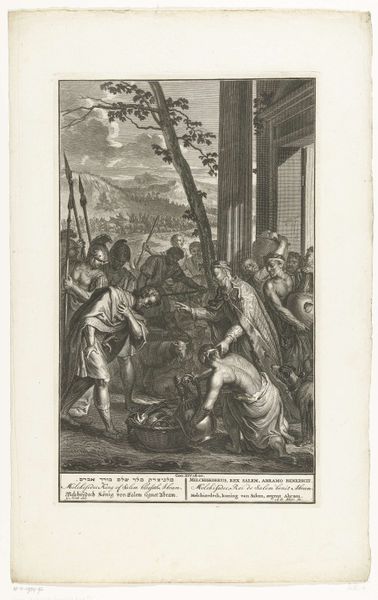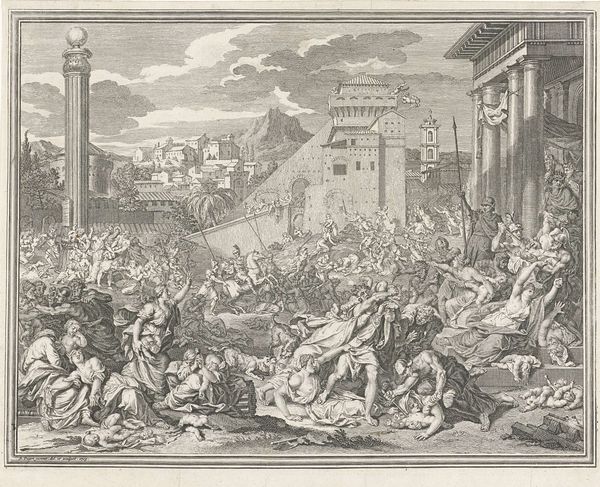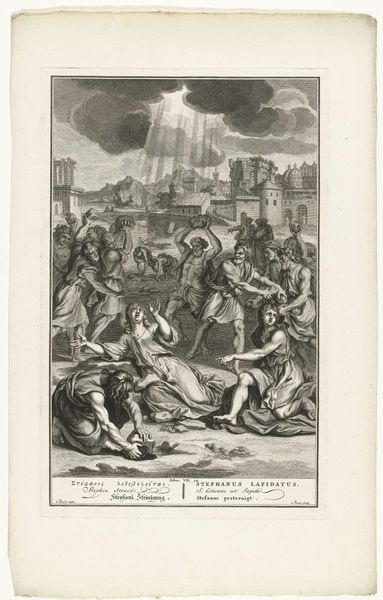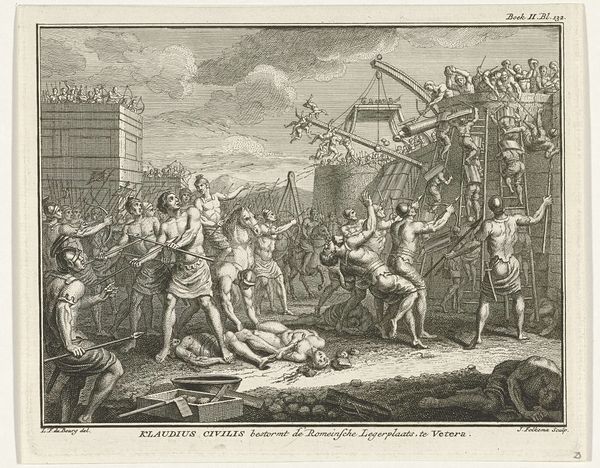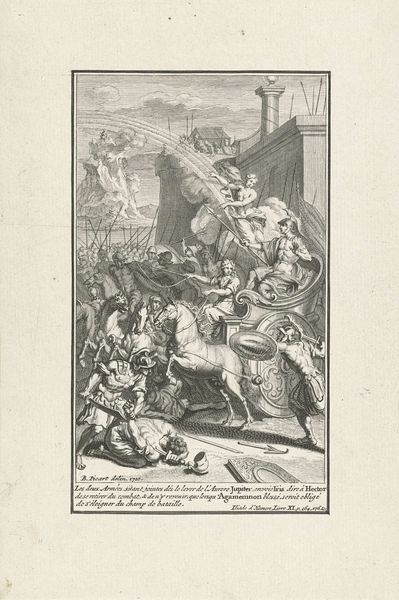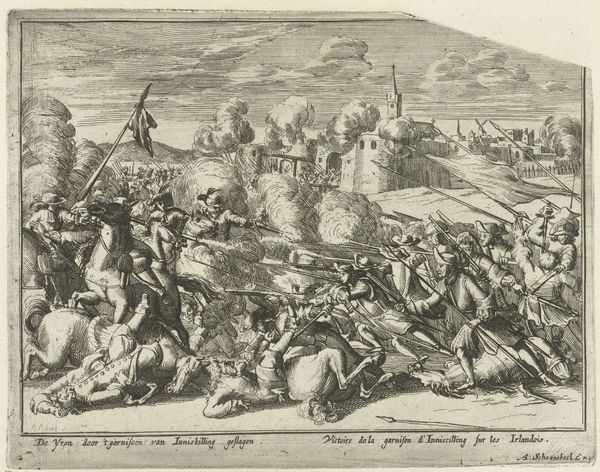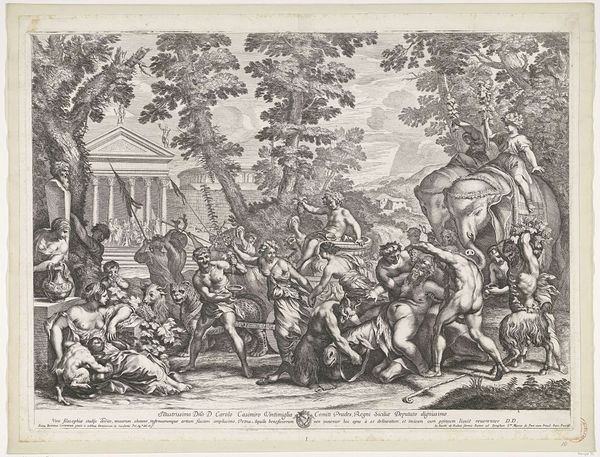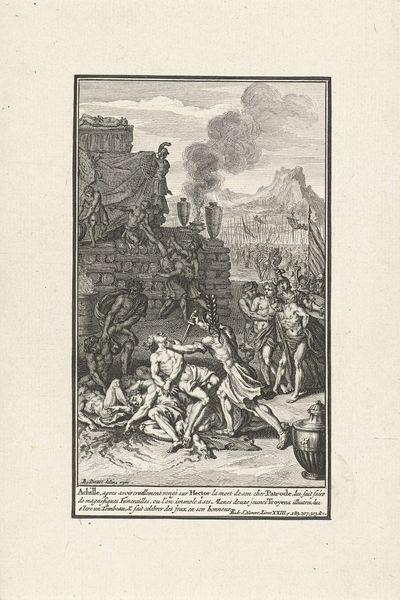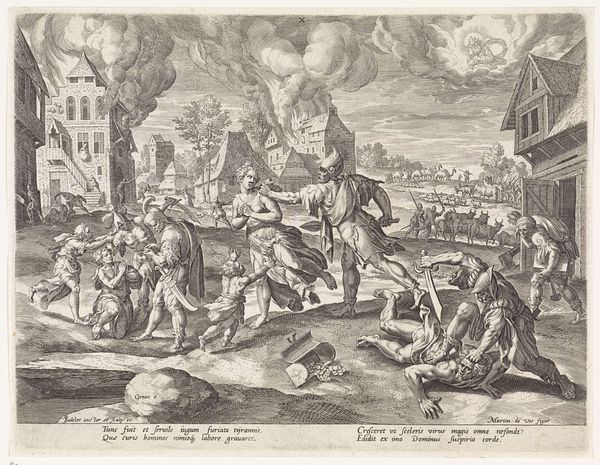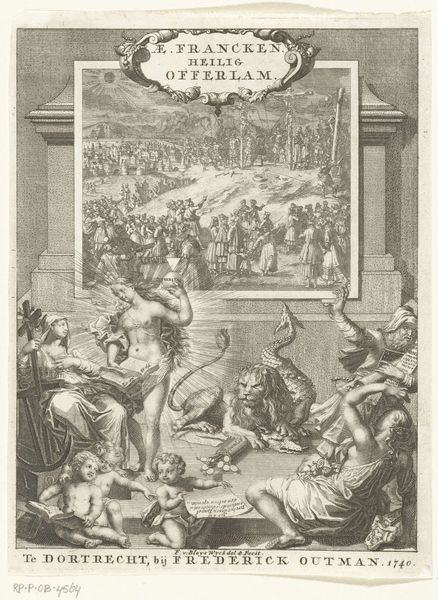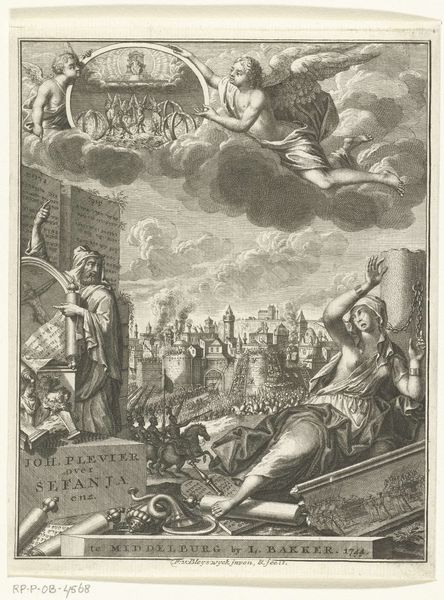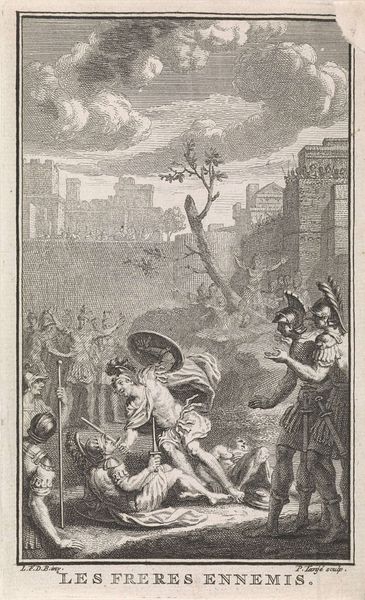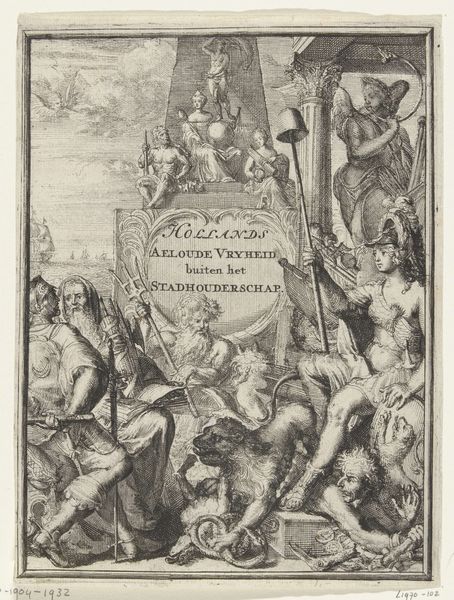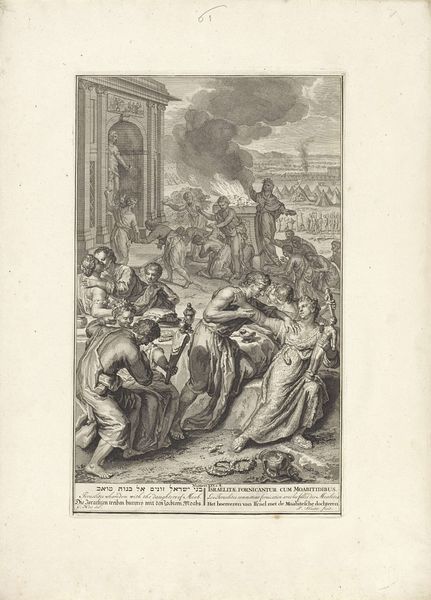
print, engraving
#
narrative-art
#
baroque
#
pen drawing
# print
#
old engraving style
#
figuration
#
line
#
cityscape
#
history-painting
#
engraving
Dimensions: height 189 mm, width 147 mm
Copyright: Rijks Museum: Open Domain
Simon Fokke’s “Massacre of the Innocents,” created in the 18th century, captures the biblical tale of infanticide ordered by King Herod. Soldiers are seen amidst wailing mothers and lifeless children—a scene laden with despair. This visual representation is not unique. We see echoes in earlier works by artists like Peter Paul Rubens and Nicolas Poussin. Fokke employs the serpent-like figure of the villain—Herod—a motif with roots stretching back to ancient mythologies of chaos and evil. Consider, too, the motif of the grieving mother, her anguished pose a universal symbol of loss, present in depictions of Mater Dolorosa and countless other lamentations across cultures. Here, collective memory and subconscious terror blend. The image transcends its biblical context, tapping into primal fears of violence and loss, a recurring nightmare in the human psyche. This potent imagery endures, reappearing through time. Its power lies in its ability to evoke these deeply embedded emotions.
Comments
No comments
Be the first to comment and join the conversation on the ultimate creative platform.
